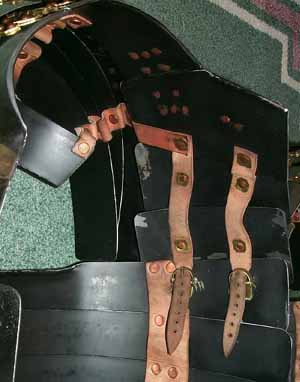That's ignoring the great prestige that comes with being a centurion, for one. If you have "it", you flaunt "it'; its just a basic rule of man. A centurion's crest was hardly a combat asset; it marked him out to the enemy, and it made his helmet somewhat top heavy, which was why regular legionaires only wore them on special occasions - but he still wore it. Why? Because he could, and because it made him recognizable. The medallions he wore were big, heavy, clumsy, and attached together with leather straps (which, being on the outside, would here this time be vulnerable), and served no combat purpose whatsoever - but he still wore them. Why? Because he could, and because it made him recognizable.
A centurion would not throw himself into the fray without good reason, because he had to lead his men. This is not to say he certainly could not fight - he was likely the best swordsman in the entire century - but it was not his job to fight individually as a barbarian, but as the leader of his team. His soldiers would have easily understood this with few qualms, because a centurion, by his very stature, had already proved himself to be competent and brave. His death would not spur on his century, but only cause confusion in the ranks as the optio (second-in-command), who would be directing the ranks further back, would have to be informed and then take command of twice as many troops as he normally would.



 Reply With Quote
Reply With Quote

 (far right here), which was adopted because of Roman encounter's with the falx.
(far right here), which was adopted because of Roman encounter's with the falx.


















Bookmarks